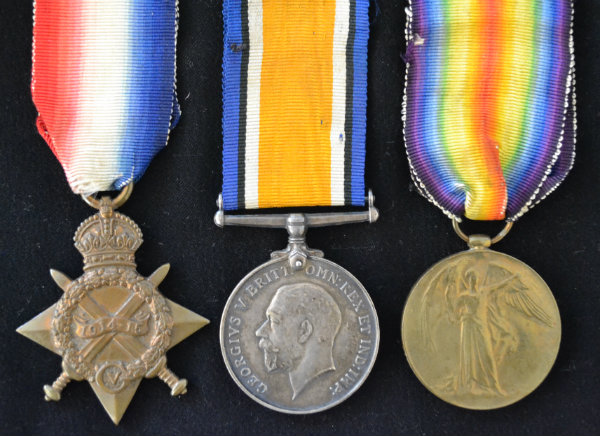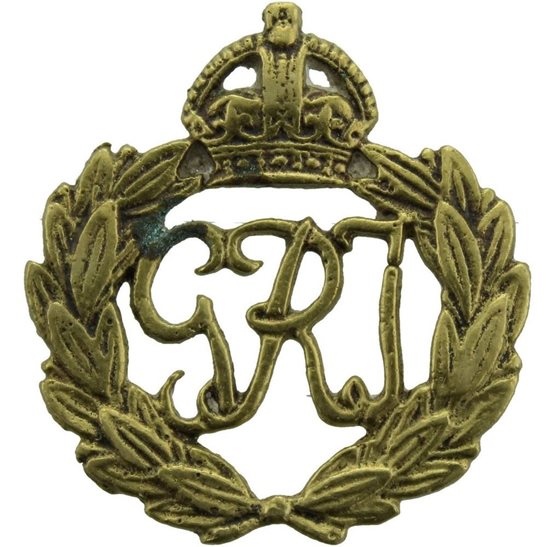Personal Details
Born: 1 November 1894 in Swinton, Lancashire.
Family: He was the eldest of five children born to Anthony Welch, a general dealer, and his wife Elizabeth. He married Norah Alice Lang on 8 September 1920 in Bombay, India; no children can be traced for the marriage.
Residence: In 1901 he was living with his family at 15 Dodington, Whitchurch, Shropshire; this is the address given for him on the 1919 Absent Voters’ Register. In 1911 he was attending the Roman Catholic College, Ushaw, Lanchester, County Durham; this college was a Roman Catholic seminary, suggesting he was being prepared for the priesthood. He was married in India in 1920 and it is probable that he and his wife remained in India for some time afterwards. His address at the time of his death was Glan Aber, Llanasa, Flintshire.
Employment: Not known
Died: 27 May 1970 in Holywell, Flintshire, Wales, aged 75.
Military Details
Regiment: Indian Army (previously Royal Fusiliers)
Rank: Acting Captain (previously Private) (commissioned 29 January 1918)
Service Number: PS/5910 (Royal Fusiliers)
Date of Enlistment: Prior to 13 November 1915
Date of Discharge: After July 1922
Reason for Discharge: Not known
John was awarded the Campaign Medals (1915 Star, Victory and British War Medals)

The 1914 Star (also known as 'Pip') was authorised under Special Army Order no. 350 in November 1917 and by an Admiralty Fleet Order in 1918, for award to officers and men of the British and Indian Expeditionary Forces who served in France or Belgium between 5 August and midnight of 22–23 November 1914. The former date is the day after Britain's declaration of war against the Central Powers, and the closing date marks the end of the First Battle of Ypres.
The 1914–15 Star (also known as 'Pip') was instituted in December 1918 and was awarded to officers and men of British and Imperial forces who served against the Central European Powers in any theatre of the Great War between 5 August 1914 and 31 December 1915. The period of eligibility was prior to the introduction of the Military Service Act 1916, which instituted conscription in Britain.
The British War Medal (also known as 'Squeak') was a silver or bronze medal awarded to officers and men of the British and Imperial Forces who either entered a theatre of war or entered service overseas between 5th August 1914 and 11th November 1918 inclusive. This was later extended to services in Russia, Siberia and some other areas in 1919 and 1920. Approximately 6.5 million British War Medals were issued. Approximately 6.4 million of these were the silver versions of this medal. Around 110,000 of a bronze version were issued mainly to Chinese, Maltese and Indian Labour Corps. The front (obv or obverse) of the medal depicts the head of George V. The recipient's service number, rank, name and unit was impressed on the rim.
The Allied Victory Medal (also known as 'Wilfred') was issued by each of the allies. It was decided that each of the allies should each issue their own bronze victory medal with a similar design, similar equivalent wording and identical ribbon. The British medal was designed by W. McMillan. The front depicts a winged classical figure representing victory. Approximately 5.7 million victory medals were issued. Interestingly, eligibility for this medal was more restrictive and not everyone who received the British War Medal ('Squeak') also received the Victory Medal ('Wilfred'). However, in general, all recipients of 'Wilfred' also received 'Squeak' and all recipients of The 1914 Star or The 1914/1915 Star (also known as 'Pip') also received both 'Squeak' and 'Wilfred'. The recipient's service number, rank, name and unit was impressed on the rim.

